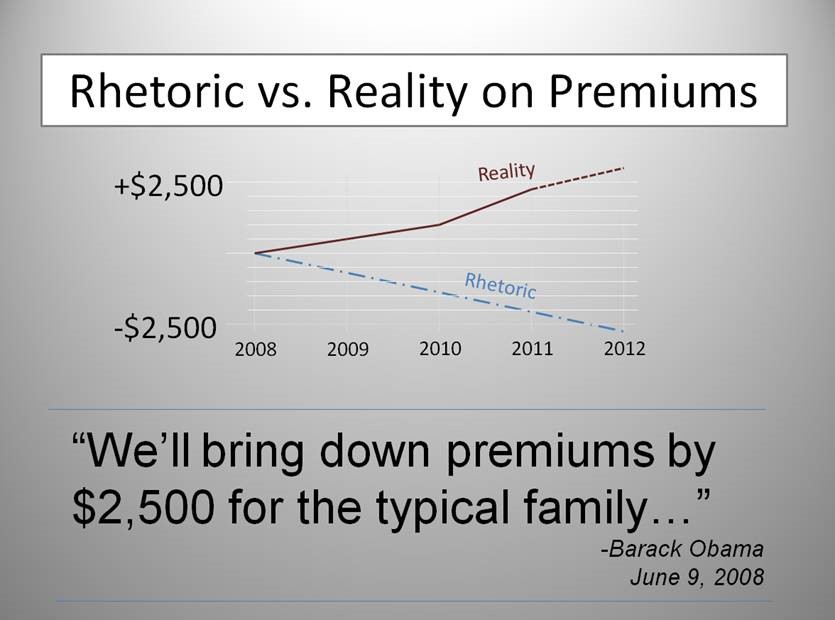Peter Orszag Admits Obamacare’s Failures, Says Law “Could Become Unsustainable”
Writing in a Foreign Affairs piece published last week, former CBO Director and Obama Administration Office of Management and Budget head Peter Orszag, although generally supportive of the health care law, included some interesting comments about its shortcomings. Among the more interesting tidbits is this paragraph regarding the ability of the law to control premiums and costs:
Barack Obama’s presidential campaign had promised massive cost savings from reform, including $2,500 a year per family. But such savings were never going to be confirmed by the CBO under any scenario. And since the House bill was relatively weak on cost containment anyway but was the first version to receive a public CBO analysis, the contrast between Obama’s campaign promises and the CBO’s forecast proved something of a shock to the public. [Emphasis mine.]
For those of you keeping score at home, the Obama Administration’s progress on achieving its $2,500 promised premium reduction is illustrated graphically below. Of course, Dr. Orszag would say that the law will lower costs, and therefore premiums, over time. But why should we believe Orszag when he says premiums might fall in the future, when Orszag himself admits that the President’s promise of lower premiums over his first term was largely a fantasy?
The article also includes other interesting claims about the law’s shortcomings – including the potential for “unsustainable” new spending:
- “The biggest substantive shortcoming of the legislation involves tort reform” – or specifically the lack of it: “By failing to move forcefully” on tort reform, “the health reform act missed a major opportunity.”
- While Orszag doubts that employers will drop health coverage en masse, he envisions a scenario whose fiscal effects would be almost as harmful: “they could start dropping high-risk workers by designing health plans that encourage these employees to purchase insurance on the exchanges. This is a legitimate concern. If employers altered their plans, this could create a spiral effect, in which those employees buying insurance on the exchanges would be disproportionately high-risk patients, raising premiums and defeating the purpose of risk sharing. The cost to the federal government of subsidizing coverage in the exchanges, in turn, could become unsustainable.”
- “The health legislation, if anything, will exacerbate” current consolidation within the hospital industry “by inducing a new round of mergers among clinics, hospitals, and practices.” Orszag’s article admits the possibility that the programs included in the law could end up quashing rather than enhancing competition – which will only raise cost levels rather than lowering them.
As a reminder, Dr. Orszag will be testifying before the Finance Committee on Thursday morning. It will be interesting to see how he squares his message of deficit reduction with his observations that Obamacare’s perverse incentives could cause the creation of an unsustainable new entitlement.
